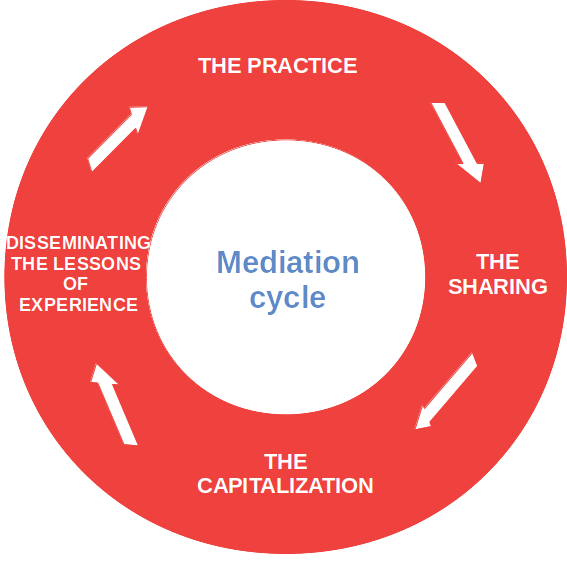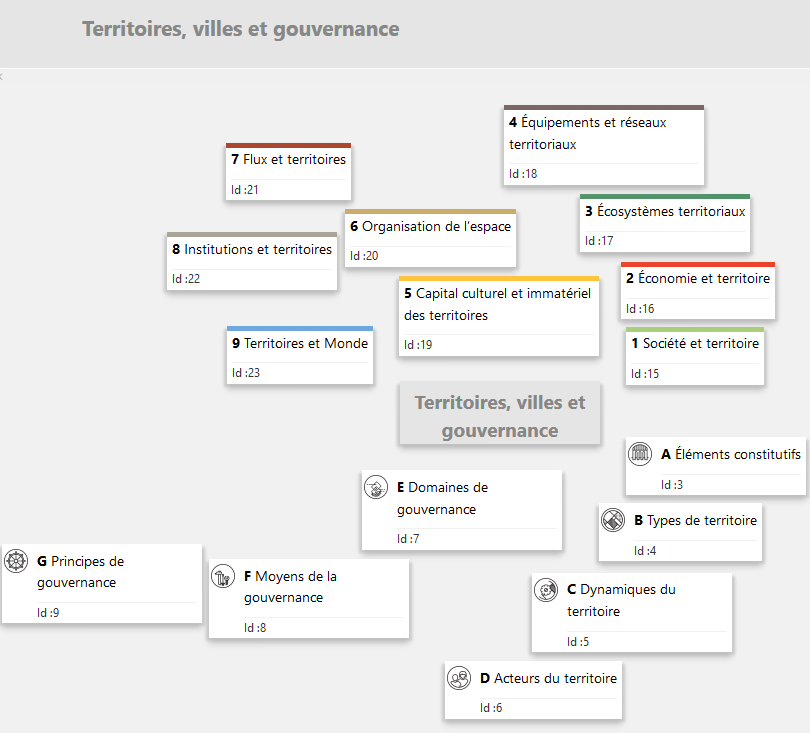Discover and share experiences
The Documentary Fonds
The documentary collection is a showcase of the wealth of experience acquired on various issues relating to the transition of territories and territorial governance, result of the pooling of the experiences of several dozen partners.
The thematic files, at the origin of Citego
In its launch phase, before 2015, Citego’s documentary collection has been built up through the elaboration of thematic "dossiers" entrusted to associations, researchers and universities. Some sixty files have been produced, some of which are very well completed, such as the one produced in 2014 by Nacima Baron of the "Cities, Mobility, Transport" research laboratory in Marne La Vallée, or the one conducted by the SSE Lab on the territorial poles of economic cooperation or the one on the territorial anchoring of education policies produced by Monde Pluriel.
The advantage of the method was twofold: it gave initial credibility to the documentary collection, which started from scratch; and it was the first exercise in capitalizing on the experience by producing summaries of the dossier aimed at identifying common guiding principles.
Towards a new generation of thematic files
With the development of Citego, the rapid rise in the number of visits to the site, often from a search engine like Google, more and more networks have been eager for their best experience records to be found on the Citego site. The structuring of the site by thematic folders has then lost its interest, each folder being too closed on itself. The implementation of the relational atlas as of 2018 reminded us that the challenges had to be linked together, which was difficult to do with the thematic files.
The value of thematic summaries remains: it is one of the ways of capitalizing on experiences. Citego is open to publish summaries of all documents indexed by the same descriptor of any synthesis effort that would be made from a descriptor of the atlas, taking into account contributions from various sources.
Browsing and search tools
CITEGO offers different browsing:
- A free search engine (scrutari) allows you to find relevant answers by title and keywords on CITEGO and, more generally, on a community of resource sites (COREDEM).
| COREDEM: The CITEGO site is part of the Confederation of Resource Sites for Global Democracy (COREDEM). This confederation brings together some thirty sites that share the same spirit: the sharing of experiences is what is most useful for action; and it is a common good that multiplies by being shared. It is in this spirit that the members of COREDEM mutualize their documentary resources, thus favouring free access and sharing. Internet users who search on CITEGO can extend their search to all COREDEM sites. |
- A search by author, by organisation or by geographical area
- A navigation through the relational atlas, a semantic mapping exercise, which aims to make visible the links between concepts, issues, modes of action and actors. The relational atlas is one of the site’s content indexing tools, which allows to emphasize the links between concepts and topics. It allows navigation from the general to the particular, from the particular to the general or by "neighbourhood". CITEGO thus seeks to bring together "stories" with analogies, for example reporting on the same type of policy, but taking place in very different contexts, which make it possible to draw lessons of a more general scope and to identify the guiding principles that are the key to success or failure.
| We invite you to test it and to send us your comments and suggestions at: atlasrelationnel (at) citego.org |
- A "snowball" navigation, via the link between the contents of the site ("linked documents", "to find out more"), which proposes to the reader other contents that may be of interest to him and complete the document being read.
The Mediation Cycle

Organize the sharing of experiences
There is nothing trivial about this first step. It is not easy to move from dialogue between practitioners "over a cup of coffee", always useful and rich, to a stage of greater formalisation necessary to transform "lived experience" into "a transmissible experience". In order to share the experience, it is necessary to write short texts that are neither purely factual nor too theoretical. I have found, over these three decades, that writing a good case sheet is a very demanding intellectual exercise. We recommend to do it "as a threesome": at the beginning, when we say to an actor "can you write a case sheet on your own experiences" he answers: "yes of course no problem! ». Unfortunately the result is almost always unsatisfactory; either it is banal, telling a sequence of events intimately linked to the context, or, what is worse, the person, taking up the pen, starts to want to write like a researcher, producing an abstract, general and boring text. Yet this same actor is exciting when he tells his story.
The rule of the three-way game: the first tells, the second takes notes, and the third, who has not listened to the story, reads the notes and criticizes them. Let’s remember that a beautiful case sheet is a little gem.
Capitalizing on the experience of a set of actors
Once you have accumulated a number of case sheets on the same theme, what can you get out of them? Experience shows that comparison between the cases makes it possible to go beyond the conjunctural elements of each context and to identify common guiding principles that turn out to be the common conditions for success.
This work of capitalization can be done "in room", by an isolated person, and this is the case when in Citego a synthesis of a thematic dossier is written, bringing together a series of cases on the same subject. But the exercise is much richer when it is done by the collective that brought together the actors who wrote the case files, because the guiding principles are then the fruit of a collective intelligence approach that allows each person to better appropriate the conclusions. For this second step, Citego provides a free software, Desmodo (desmos means "the link" in Greek) which allows each actor to visualize his point of view and that of the others, so that the synthesis is made in full view of everyone. This traceability is a major condition for the legitimacy of the conclusions.
A good example of the application of the approach is given by the synthesis of the work of the international meeting Climate Chance organised in Nantes in September 2016.
Disseminating the lessons of experience
The aim of the exchange of experiences is twofold:
- to help a collective evolve by learning from each other’s experience, which is the definition of learning communities;
- to disseminate more widely these lessons of experience to enable others to appropriate them, which is the purpose of the distance learning modules. But the guiding principles drawn from experience remain abstract if they are not illustrated by concrete cases. Training must therefore be based on the first two stages of the cycle, collection and capitalisation of experience.
